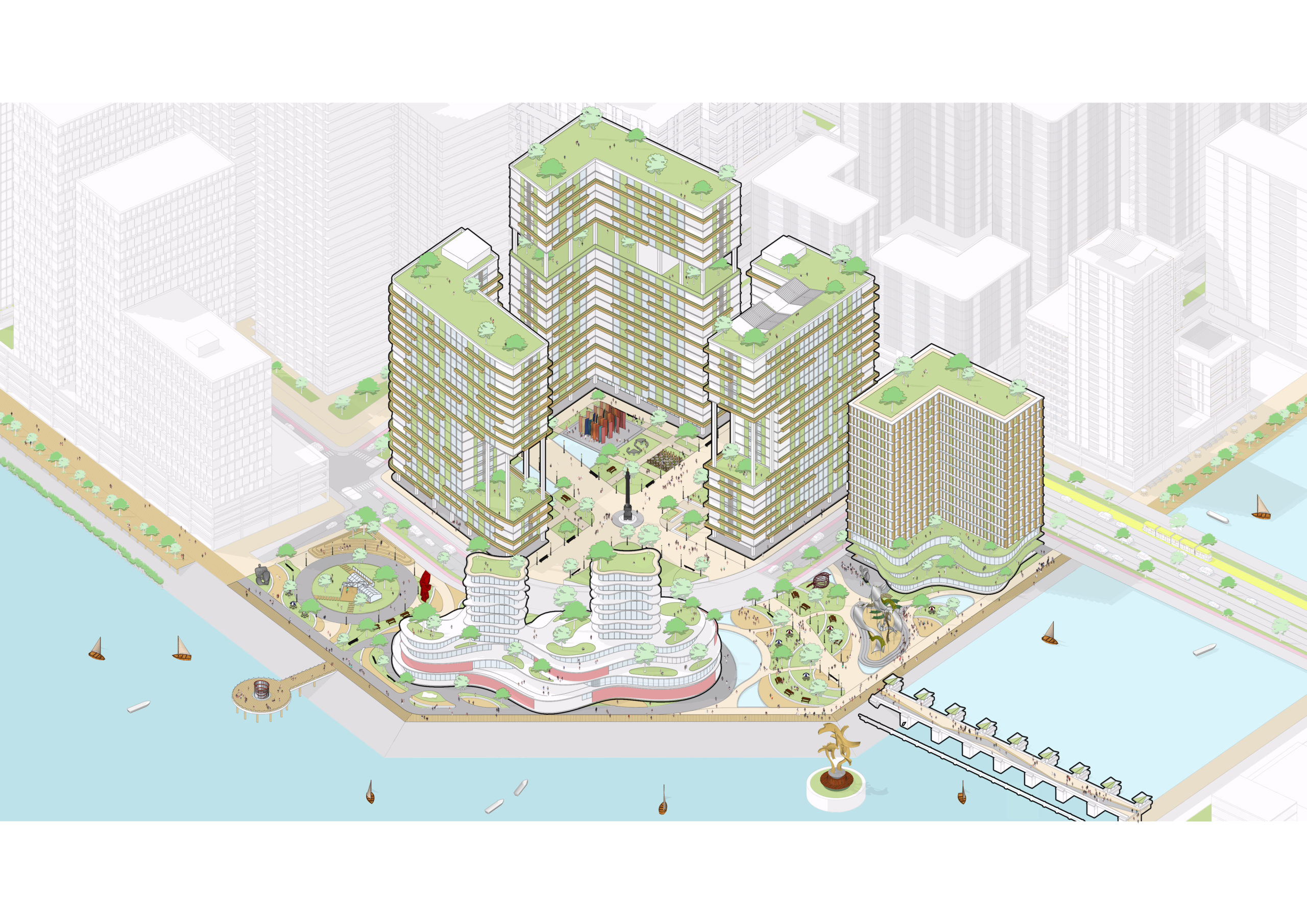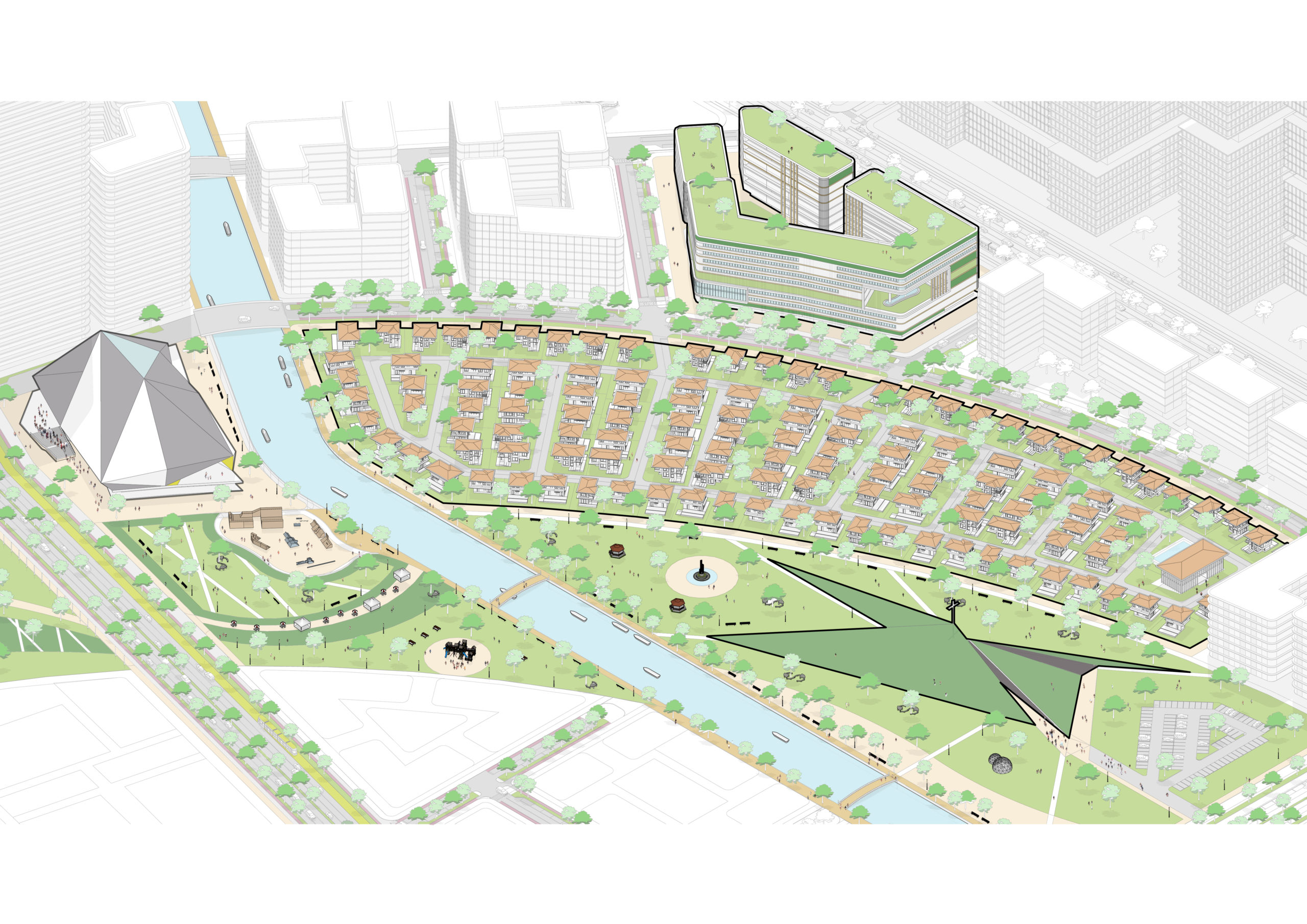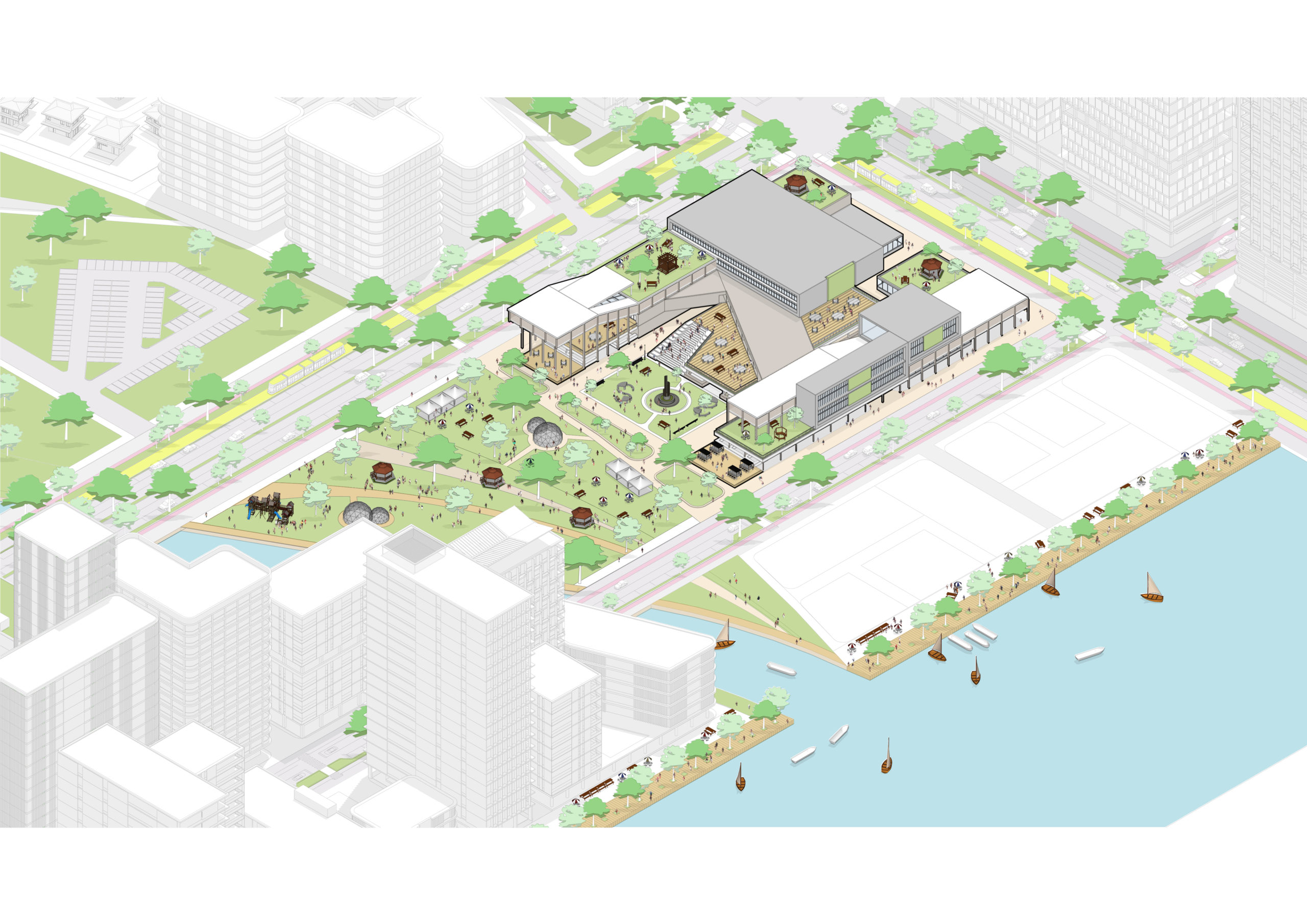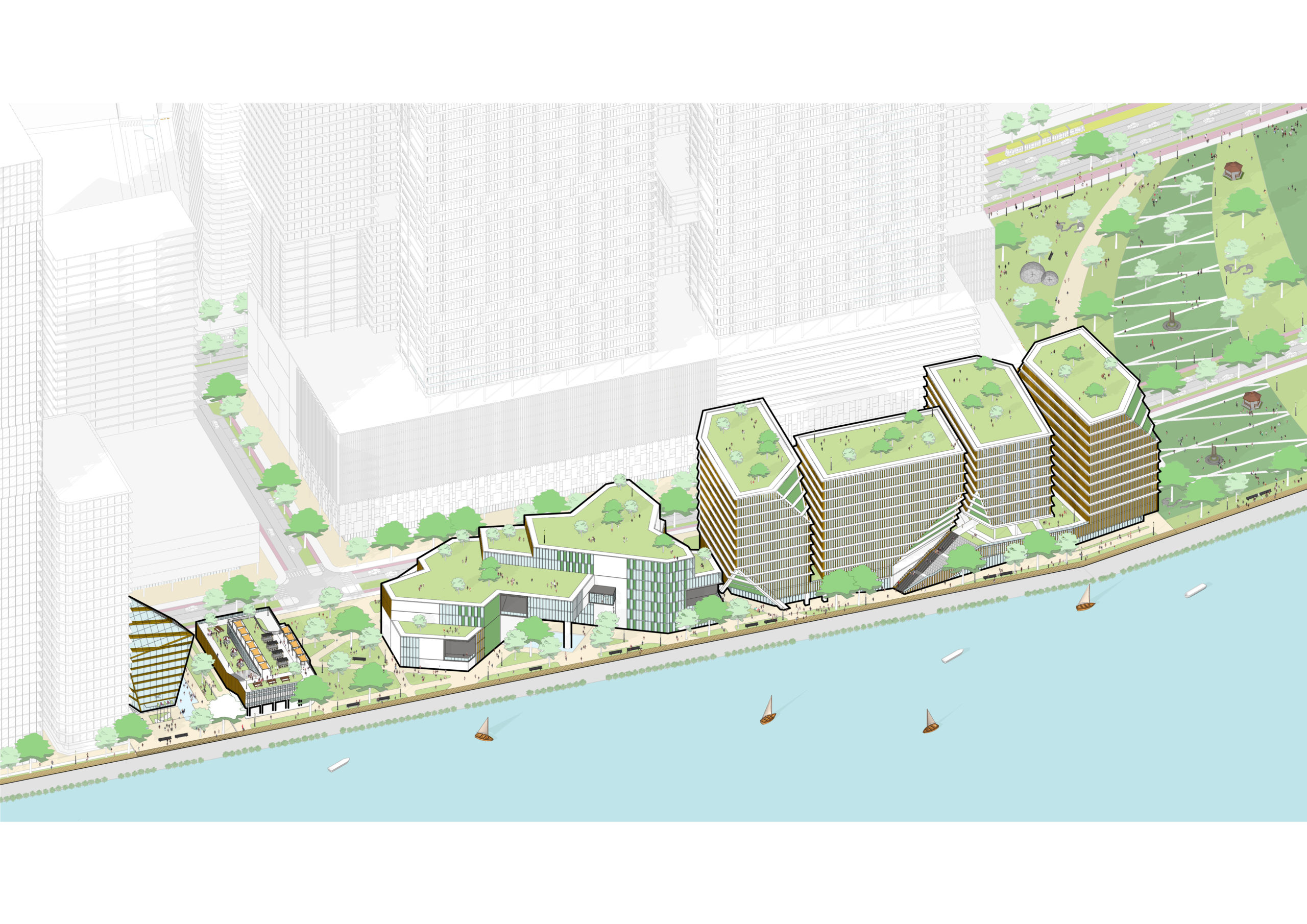Urban luxuries
People live in cities for a variety of reasons. One of the more delightful aspects to urban life is the immediate access to so many diverse public spaces and social activities. They allow us to lead experientially dense lifestyles and greatly heighten the energy and vibe of our cities.
The urban luxuries that one finds in great cities range from culture to sports, from learning to leisure. They are often the finest expressions of our architecture and the highlights of our built environment.

The contemporary arts museum forms the cornerstone for the arts and culture district. It also forms one end of the lifestyle shopping street opposite the market square.
Culture
Cultural spaces cultivate and reflect the achievements and expressions of society. Museums are archives of knowledge and the arts. Historical museums allow us to celebrate and learn from the events of our past. Scientific museums showcase knowledge and allow us to experience and interact with science to better our understanding of them. Art museums preserve and exhibit our artistic endeavors as the pinnacle of human achievement and allow us to explore beyond the physical boundaries of our reality. They generate creativity and provoke our thoughts.
Theaters and galleries allow us to experience the collective development and expression of society. They nurture talent and ideas and enrich our lifestyles with imaginative works and narratives. Performances and exhibitions allow us to escape from the temporal and physical confines of urban life.

The villa district will be the first community at Horizon Manila. It will be set by the canal and bounded by the park. This district will have the first school, church, library and skatepark along with an e-sports arena to better enhance quality of life.
Sports
Humans are active creatures. Our need for healthy and active pursuits has been highlighted by the current pandemic. Sports remain one of the most basic human needs that help determine our well-being. The assortment of sports venues that one finds in a city is a luxury that allows us to pursue our individual interests to better our physical health. They allow us to engage in healthy competition with our peers, provide the adrenalin rush of small victories and develop sportsmanship in our youth.
Stadiums and arenas are the largest gatherings of people pursuing a common interest. There remains no viable alternative to the visceral energy of watching a live game. These spaces are essential to rouse and bring together the collective energies of a community.
They are modern day campfires where tens of thousands come together to share one communal experience.

The market square anchors the market and trade districts at Horizon Manila. It will be one of the earliest retail developments and will facilitate growth in these communities.
Learning
Cities are a consequence of increased productivity and specialization. One can only expect then to find the tools and spaces that allow us to learn and develop the necessary skills for a continuous lifetime of learning.
The range of public facilities are not just limited to schools and libraries. The luxury of living in a city is the highly specialized training that one can find from multiple places as well as the heightened education provided by the best learning institutions.
Schools for childhood education to universities remain the main axis for human development and learning. Some of our strongest bonds and memories are developed in these places and they form the setting for much of our childhood and youth. Primary and secondary schools especially, are a basic part of any functional community.
Beyond these institutions, cities are home to numerous centers that facilitate further learning. Art schools and vocational training centers, specialty institutes and access to a knowledge base that encompass every or most professions and trades through various associations are a vital component of any highly urbanized community.
Libraries and media centers are public learning facilities where one can further explore and discover new ideas and skills. They are unrestricted and accelerate the spread of knowledge throughout a community. They are community centers for shared activities and provide learning programs for various skills that enhance and complete our daily lives.

The mediatheque is central to the development of a tech and innovation district. It will be supported by fabrication shops, maker labs, IT school and tech campus.
Leisure
Space remains the ultimate luxury in a dense and highly urbanized community. Wide open and green spaces allow us to connect with nature and take a break from the bustle and noise of urban life. Parks and plazas are critical components of any city. They are extensions of our own homes and are the oftentimes the only open spaces accessible to many urbanites. There are various types of parks and activities that one can find in a great urban setting.
Botanical gardens and zoological parks allow us to experience and see nature that would be beyond the reach of most people. They allow us to form a basic relationship with our natural heritage from a very young age.
Plazas are the living rooms of our communities. This is where we meet and gather for shared experiences. They are immediate escapes from the confines of limited space and often allow us to orient ourselves acting as centers for our cities.
These are various forms of urban luxuries. They are all vital to the development of any city and its people. We must reinforce the understanding that these are not “luxuries” but rather necessities.
We must continue to push for the development of these spaces not because we want them but because they are an essential part of human life.
